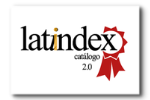The influence of social networks on Brazilian electoral behavior
Keywords:
Ideology. Public opinion. Political Preferences. Social Media and Electoral Marketing.Abstract
The supposed simplicity of inhabiting this world and participating in the electoral process does not actually reflect its complexity and the variety of aspects that can be examined. This becomes even more evident when taking into account the different means of continuous access to different types of information and the different forms of political relations. A relevant aspect concerns understanding the process by which the voter makes the decision to vote, especially when inserted in the games of public and private interests in the context of political communication. Contemporary times, defined by both postmodernism and liquidity, are marked by a predominance of the image, with mass interaction and mediated communication as its essence. From different perspectives, the voter should not be conceived as merely dominated or submissive to this power, equally, the media sphere cannot be seen as a substitute for the public sphere. In this sense, it is worth investigating the role of social networks in shaping opinion and electoral strategies, in addition to investigating how this phenomenon has shaped the behavior of young people and undecided voters. It is observed that the visual and textual emotional triggers present on social networks have significantly impacted voting behavior, with many voters unable to perceive the psychological manipulation promoted by algorithms. Therefore, the general objective of this research is to analyze the influence of social networks on Brazilian electoral behavior. It is from this space, at the intersection between politics and communication, that this research was described, since its purpose focuses on the debate that both unites and rejects interactions between media, political, economic and social powers. To do this, we consider the image approach, mediation by the media, the visible aspect of policies and social relations.
References
Chagas, V. (2018). A febre dos memes de política. Revista Famecos: Mídia, Cultura e Tecnologia, 25(1), 7.
Cwalina, W., Falkowski, A., Newman, B., & Vercic, D. (2004). Models of voter behavior in traditional and evolving democracies: Comparative analysis of Poland, Slovenia, and U.S. Journal of Political Marketing, 3(2), 7.
Davies, C. (2011). Cartuns, caricaturas e piadas: roteiros e estereótipos. In I. Lustosa (Org.), Imprensa, humor e caricatura: A questão dos estereótipos culturais (p. 95). Belo Horizonte: Editora UFMG.
Dourado, T. (2022). Teses sobre fraude nas urnas e manipulação eleitoral têm raízes em ideais autoritários. Disponível em: https://www.tre-ba.jus.br/comunicacao/noticias/2021/janeiro//201cteses-sobre-fraude-nas-urnas-e-manipulacao-eleitoral-tem-raizes-em-ideais-autoritarios201d-afirma-pesquisadora. Acesso em: 9 out. 2024.
Figueiredo, C. D. (2013). Champanhe em zona de conflito: redes sociais e controvérsia no Caso Estelita. Cadernos de Estudos Sociais, 28(1), 193.
Barbosa, F. (2024). Memes políticos disputam imaginário com humor, mas podem desinformar. Disponível em: https://agenciabrasil.ebc.com.br/politica/noticia/2024-10/memes-politicos-disputam-imaginario-com-humor-mas-podem-desinformar. Acesso em: 9 out. 2024.
Manhanelli, C. A. (1988). Estratégias eleitorais: Marketing político (p. 22). São Paulo: Summus.
Nicolau, J. (2006). O sistema eleitoral de lista aberta no Brasil. Dados – Revista de Ciências Sociais, 49(4), 689.
O Globo. (2019). Menino veste azul e menina veste rosa, diz Damares Alves em vídeo. Disponível em: https://oglobo.globo.com/brasil/menino-veste-azul-menina-veste-rosa-diz-damares-alves-em-video-23343024. Acesso em: 9 out. 2024.
Tavares, C. Q., & Massuchin, M. G. (2015). Campanha eleitoral nas redes sociais: Um estudo sobre as estratégias empregadas pelos candidatos à Presidência no Facebook em 2014. Trabalho apresentado no 4º Fórum Brasileiro de Pós-Graduação em Ciência Política, Niterói.
Zago, G. da S., & Bastos, M. T. (2013). Visibilidade de notícias no Twitter e no Facebook. Revista Journalism Research, 9(1).




















